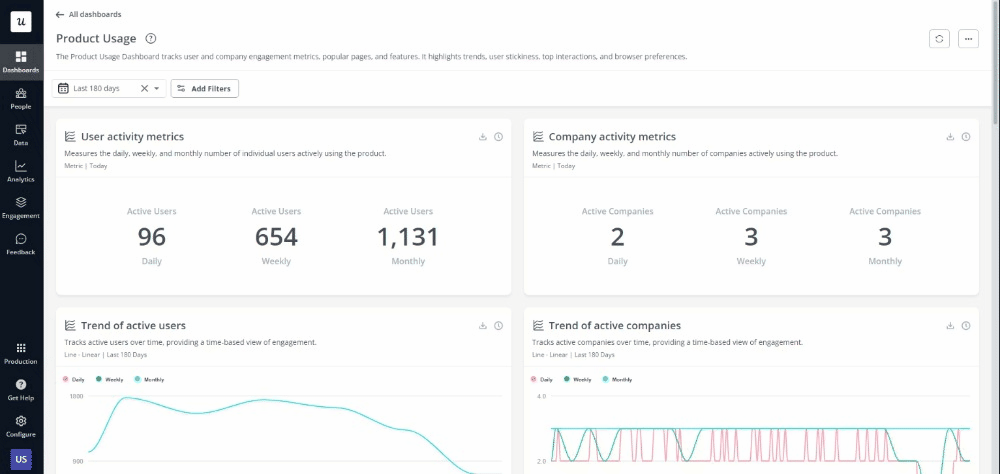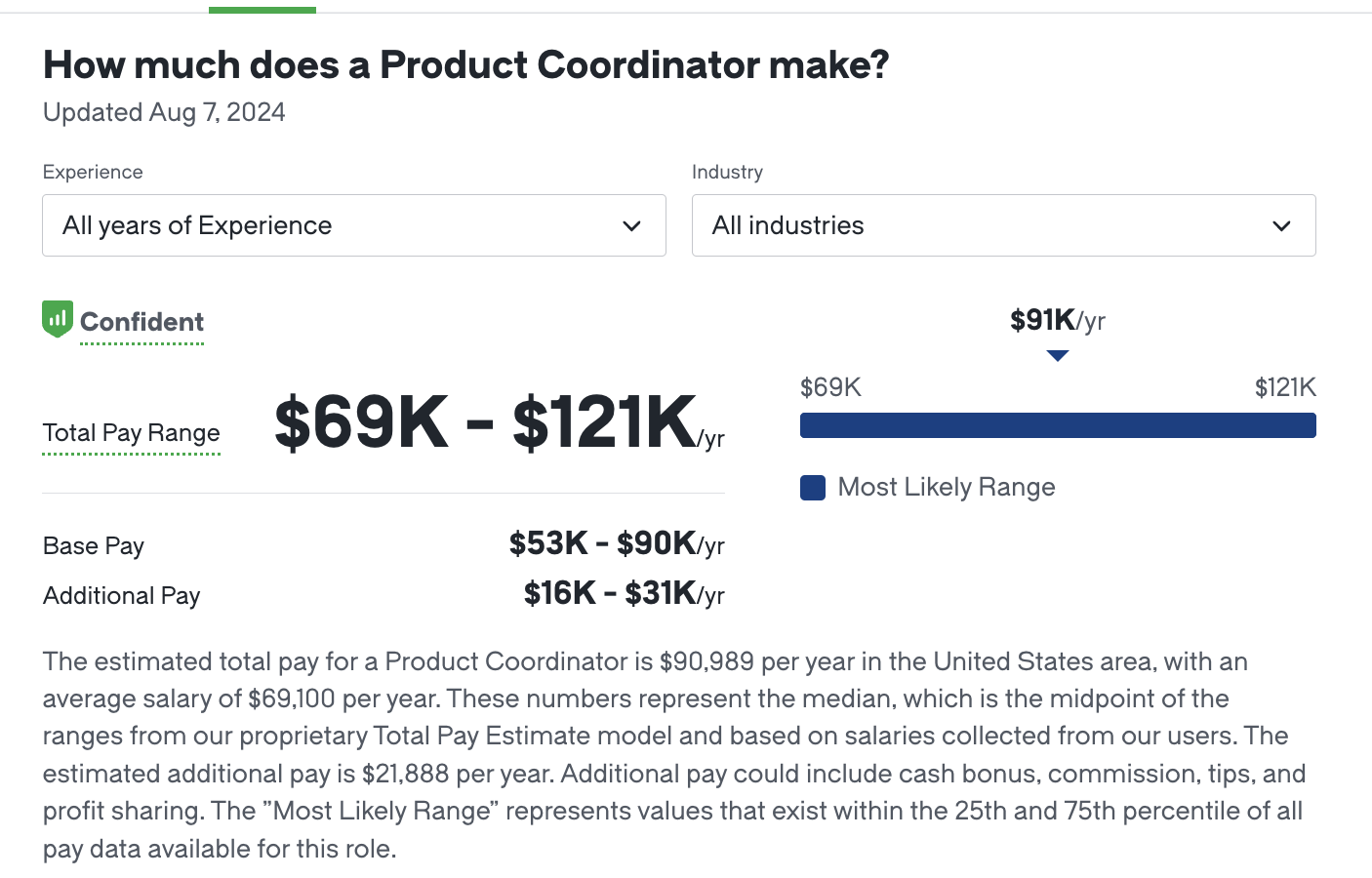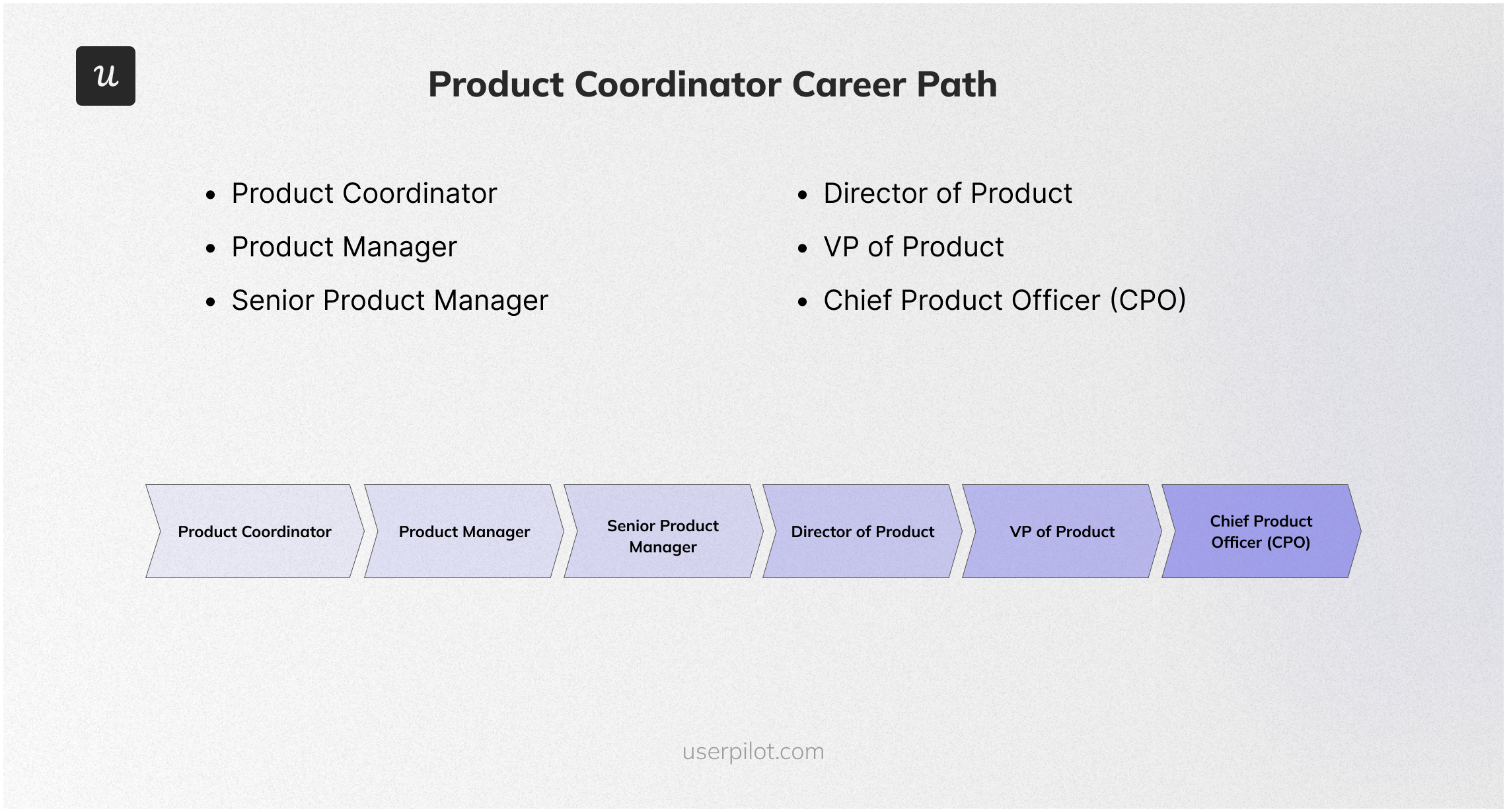
Whether you’re a seasoned professional or new to the field, understanding the nuances of product coordinators is essential for success.
In this guide, we’ll delve into the core responsibilities, salary insights, essential skills, and more, providing you with the knowledge and tools you need to excel as a product coordinator.
Try Userpilot Now
See Why 1,000+ Teams Choose Userpilot

TL;DR
- A product coordinator is a professional responsible for supporting the product team by managing various aspects of the product development process.
- The product coordinator acts as a liaison between development, marketing, and sales teams to streamline communication and ensure that the product meets both market needs and company objectives.
- Salaries differ based on a number of factors, most importantly on experience levels. Here’s a breakdown of salaries by years of experience:
- 2 to 4 years (Product Coordinator): $55,000 per year
- 5 to 7 years (Senior Product Coordinator): $70,000 per year
- 8+ years (Principal Product Coordinator): $85,000 per year
- Looking into tools for product coordinators? Userpilot is an all-in-one product platform with engagement features and powerful analytics capabilities. Book a demo to see it in action!
What is a product coordinator?
A product coordinator is a professional responsible for supporting the product team by managing various aspects of the product development process.
In a SaaS environment, the role typically involves coordinating cross-functional teams and ensuring product features are delivered on time.
What does a product coordinator do?
The product coordinator acts as a liaison between development, marketing, and sales teams to streamline communication and ensure that the product meets both market needs and company objectives.
Other key duties include coordinating project timelines, tracking progress, and managing product documentation.
Product coordinator’s main responsibilities
The Product Coordinators work closely with various departments to align efforts and achieve company objectives, driving the product from concept to market success.
- Manage Project Timelines: Track project progress and deadlines to ensure products or features are delivered on schedule.
- Coordinate Cross-Functional Teams: Ensure seamless communication and collaboration between development, marketing, sales, and customer support teams.
- Conduct Market Research: Conduct thorough market research to identify emerging trends, market gaps, and potential product opportunities.
- Manage Customer Feedback: Gather and incorporate feedback from users to refine the product.
- Prepare Product Documentation: Create and maintain comprehensive product documentation, including user guides, release notes, and training materials.
- Manage Product Backlog: Help prioritize and manage the product backlog, ensuring that the most important tasks are addressed first. Also create product roadmaps that align with company goals and timelines.
- Support Product Launches: This can involve anything from creating promotional marketing materials to collaborating with the quality assurance team to ensure compliance.
- Monitor Product Performance: Track and report on product performance metrics to identify areas for improvement.
- Assist in Budget Management: Help manage the product development budget by tracking expenses and ensuring cost-effective use of resources.
- Educate internal teams on new features: Coordinate training sessions for sales and customer support teams after updates to ensure their knowledge is up to date.
- Maintain relationships with key stakeholders: Prepare regular status reports and updates for senior management.
- Improve working processes: Implement strategies to optimize product development processes and workflows.
Product coordinator salary
Salaries differ based on a number of factors, most importantly on experience levels. Here’s a breakdown of salaries by years of experience:
- 2 to 4 years (Product Coordinator): $55,000 per year
- 5 to 7 years (Senior Product Coordinator): $70,000 per year
- 8+ years (Principal Product Coordinator): $85,000 per year
Industries, where the demand for product coordinators is highest, tend to be the same industries that pay the most on average. Finance, healthcare, consumer goods, and SaaS represent a significant portion of product coordinator job openings. Here are salaries, as reported by Glassdoor:
- Financial product coordinator: $65,000 per year
- Healthcare product coordinator: $62,000 per year
- Consumer goods product coordinator: $64,000 per year
- SaaS product coordinator: $70,000 per year
Where you live can have a big impact on how much you make as a product coordinator. As more companies employ a geographically dispersed workforce (including remote workers), it’s common for companies to offer location-based salaries.
According to Glassdoor, these are the midpoint salaries for product coordinators in the following large US cities:
- San Francisco: $80,000 per year
- New York: $75,000 per year
- Boston: $70,000 per year
- Washington, DC: $72,000 per year
- Chicago: $68,000 per year
Product coordinator career path
A career as a product coordinator offers a well-defined pathway for professional growth within the field of product management.
Below is a detailed look at the typical career path, starting from a product coordinator position, moving up through various roles, and how to progress at each stage.
- Product Coordinator: A product coordinator is responsible for supporting the product team by managing schedules, coordinating tasks, and ensuring communication between different stakeholders. To move beyond this entry-level position, focus on developing strong project management skills, understanding the product development lifecycle, and building effective communication channels within your team. Gain proficiency in tools like JIRA, Asana, or Trello, and seek opportunities to take on more responsibility within projects.
- Product Manager: Product managers take a more central role in defining the product strategy, roadmaps, and feature definitions for a product. Excelling as a product manager requires a deep understanding of customer needs and market trends and the ability to prioritize features based on business impact. Develop strong analytical skills, leadership qualities, and the ability to persuade stakeholders. Getting certified in Agile, Scrum, or Lean methodologies can also be beneficial.
- Senior Product Manager: Senior product managers oversee multiple product lines or more complex products, often guiding less experienced product managers. To advance to this level, demonstrate a track record of successful product launches and the ability to mentor junior team members. Focus on strategic thinking and influence, including developing business cases and ROI analyses.
- Director of Product: Product directors are responsible for the strategic direction of all products within a category or entire organization, managing a larger team of product managers. Moving into a director role requires extensive experience and success in product management, a strong understanding of the industry, and exceptional leadership skills. It’s also important to be adept at cross-functional collaboration and have a strong executive presence.
- VP of Product: The VP of Product oversees the entire product planning, aligning development with company-wide goals and market needs. Reaching the VP level involves not only having deep expertise in product management but also contributing to the overall business strategy. This role demands excellent leadership, strategic planning, and operational skills, along with the ability to drive results at the organizational level.
- Chief Product Officer (CPO): As a CPO, you hold a top executive role, making decisions that shape the future of the organization’s products and overall business direction. This position is typically achieved by those with a successful track record in various senior product roles, complemented by strong business acumen and the ability to adapt to fast-changing environments. Building a robust network and maintaining a visionary outlook on the product and market trends is crucial in this position.
Best practices for being a great product coordinator
Being an effective product coordinator involves much more than just managing schedules and resources. It requires a blend of strategic thinking, keen oversight, and dynamic communication to ensure that product development processes run smoothly.
Here are some fundamental best practices that can transform an ordinary product coordinator into an exceptional one.
- Set Clear Goals and Milestones: Define clear, measurable goals and milestones for every project phase. This helps keep the team focused and motivated and provides a framework for tracking progress. Regularly revisiting these goals ensures that the product development remains aligned with the overall business objectives.
- Lead by Example: Demonstrate the work ethic, attention to detail, and passion you expect to see in your team. Leading by example can inspire your team members and promote a strong work culture.
- Implement Detailed Documentation: Keep detailed records of product requirements, changes, and processes. Good documentation ensures that everyone is on the same page and can be crucial for troubleshooting and training new team members.
- Enhance Stakeholder Engagement: Regularly engage with stakeholders to ensure their needs and expectations are met. This can include structured feedback sessions and regular updates. Keeping stakeholders informed and involved can prevent misunderstandings and align the product with business goals.
- Develop Feedback Loops: Establish robust feedback loops with both users and internal teams to continuously improve the product. This involves not only collecting feedback but also actively implementing changes based on that feedback to refine the product and meet user needs effectively.
Product coordinator FAQs
- What is the role of a product coordinator? A product coordinator assists in managing and organizing the various tasks involved in the development of a product. Their responsibilities include scheduling, documentation, and coordinating communication between teams.
- What is the difference between a product manager and a product coordinator? A product manager oversees the strategic aspects of product development, including vision, roadmap, and feature prioritization. In contrast, a product coordinator handles more operational tasks, such as managing schedules and ensuring smooth communication across teams.
- Is product coordinator a good role? Yes, it’s an excellent role for those starting in product management. It provides foundational experience in project coordination and team collaboration, useful for advancing to higher roles within the field.
- What job level is a product coordinator? A product coordinator is generally an entry-level to mid-level position, serving as a foundational role ideal for individuals looking to gain experience and grow within the product management discipline.
Conclusion
We hope this guide has provided you with valuable insights into the roles, responsibilities, and rewards associated with this role.
Looking into tools for product coordinators? Userpilot is an all-in-one product platform with engagement features and powerful analytics capabilities. Book a demo to see it in action!










